There are many English language test alternatives like the Pearson Test of English (PTE), the medium of instruction (MOI) test, the Oxford International English Test (OIET), Academic, and Duolingo that UK universities accept.Studying in the United Kingdom is a dream for many international students seeking admission to top universities in the UK, particularly in universities in London and West London.
UK universities are renowned for their academic excellence, diverse student community, and rich cultural experience. However, admission to a UK university can be challenging for non-native English speakers who must demonstrate their English language proficiency by taking a standardized language test.
The International English Language Testing System (IELTS) is the most popular English language test accepted by UK universities, including public universities in the UK. However, taking the IELTS test may not be feasible for some students due to factors such as high test costs, limited availability of test centers, or insufficient preparation time.
If you’re an international student looking to study in the UK without IELTS, you have several options. We will explore the differences between these tests and compare them to the IELTS, providing insights into which test may be the best fit for your academic and professional goals.
MOI
If you have previously completed your education in English, you may not need to take an English proficiency exam like the IELTS, Duolingo, PTE, OIETC, TOEFL, or any other internal test to apply to UK universities. The medium of instruction (MOI) refers to the language used for teaching, but it doesn’t necessarily have to be the official language of the country or region.
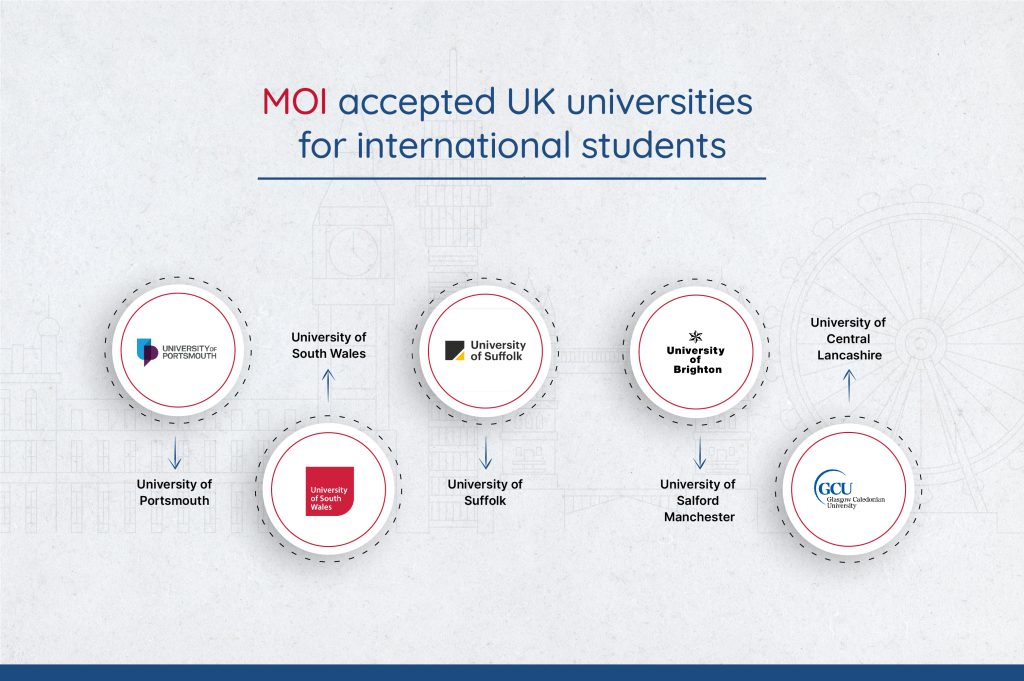
If your last school was approved by UK Visas and Immigration (UKVI), you can apply to MOI-accepted universities in the UK without having to take an English proficiency exam.Studying at a MOI-accepted university in the UK provides a great opportunity for international students to receive a quality education with professional faculty and the availability of post-study work (PSW) without the added stress of an English language test.
Universities such as the University of Portsmouth, University of South Wales, and other public universities in London and across the UK offer this option for international students. It’s important to note that each university has its own admission requirements, so it’s crucial to research and understand the expectations for each stage of the application process. By doing so, you can present yourself in the best possible way and increase your chances of acceptance.
OIETC
Studying in the UK as an international student is an excellent opportunity to gain a quality education and valuable cultural experience. If you’re interested in studying at top universities in the UK like the University of London, London South Bank University, University of Hertfordshire, or De Montfort University but don’t have an IELTS score, there are alternative options available to demonstrate your English proficiency.
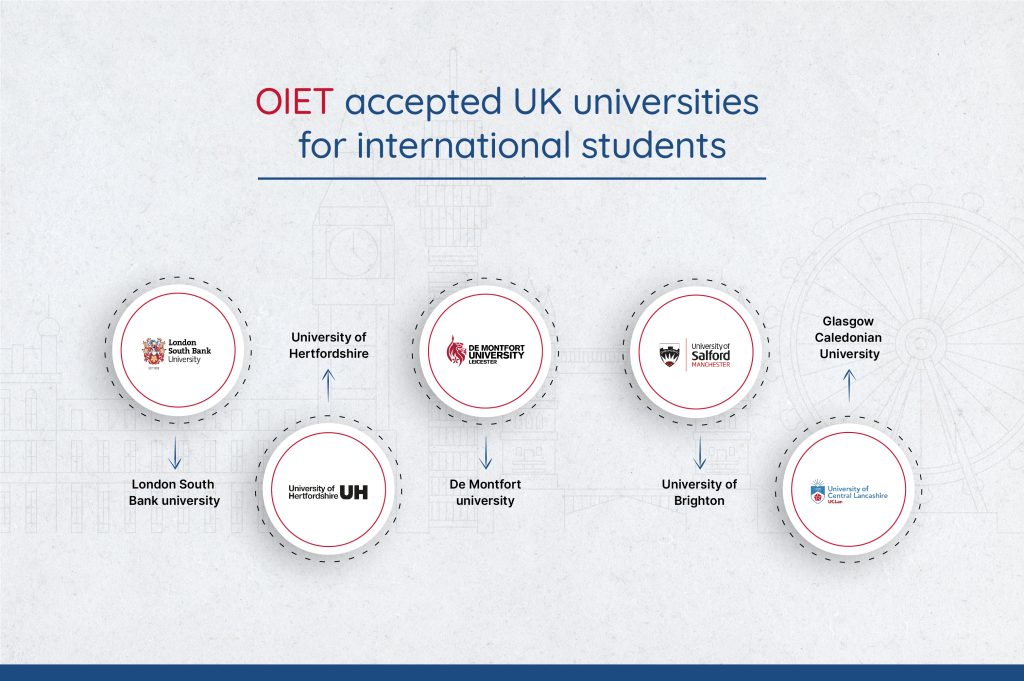
One such option is the Oxford International English Test Center (OIETC). The test includes four modules, with reading and listening being the first two. Following that, students need to complete a writing exam, where they must write an opinion-based essay. Finally, the speaking test takes place over a video call with a qualified English teacher. All four modules can be completed online, and the reading test takes 40 minutes to complete, while the listening test takes 20 minutes. The writing test takes 60 minutes, and the speaking test consists of three stages that take approximately 15 minutes.
If you achieve a required score on the OIET, you can qualify for a degree program in the UK. However, it’s important to note that OIET is not accepted for foundation programs in the UK. For those, you must have a UKVI IELTS score. Once you complete the OIET, your results will be emailed directly to you, and you must forward them to the admission team to confirm your eligibility for admission.
Thousands of international students planning to study in the UK Universities, they’ll need to demonstrate a minimum level of English proficiency. While IELTS is the most popular choice, there are alternative options available, such as the Pearson Test of English (PTE). It is a well-known English language proficiency test which is accepted by over 400 universities in the UK, including some of the most prestigious and best universities in the UK such as Warwick University, Bath University, East Anglia University, and the London Business School.
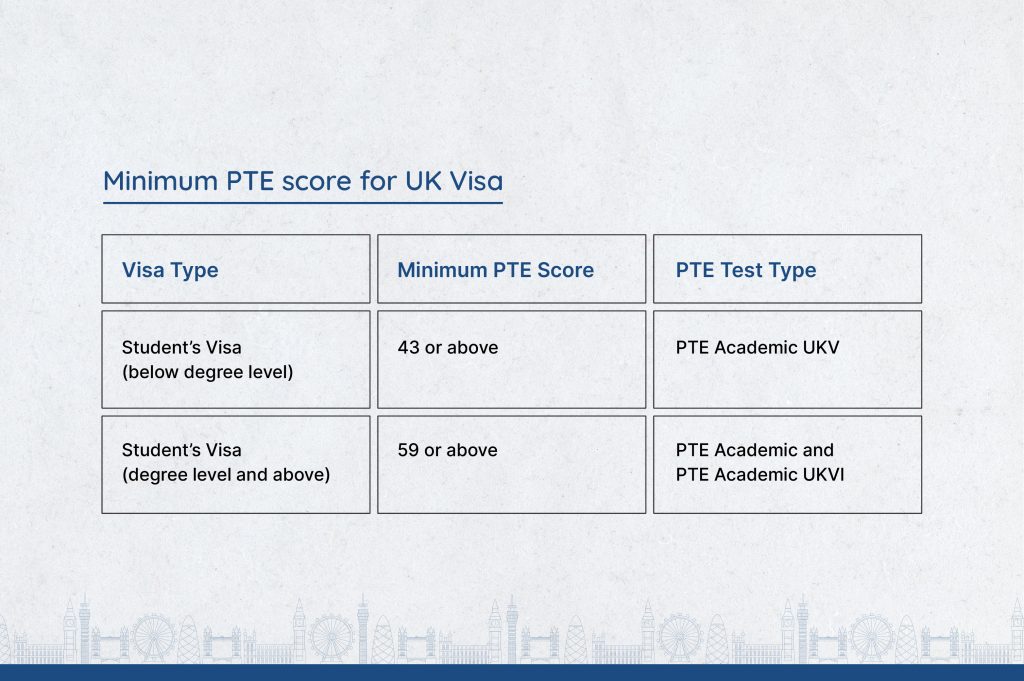
The PTE Academic exam is a two-hour computer-based test that assesses your English communication skills in real-life situations. It consists of four sections: speaking, writing, listening, and reading. To study this accepting university in the UK, you need to achieve a specific PTE score. Candidates must have an overall score of 59 to be considered for admission. PTE registration is done online, and you need a valid ID, such as a valid Bangladeshi passport, to register for the exam in 2023.
It’s important to note that each university has its own admission requirements, so it’s crucial to research and understand the expectations for each stage of the application guideline. A high PTE score will increase your chances of School admission. If you’re planning to study, work, or settle in the United Kingdom, PTE is an excellent option. Ninety-nine percent of UK universities accept PTE tests, as do all UK visa and immigration applications. Whether you’re planning to study at universities in London, West London, or any other part of the UK, achieving a high PTE score can help you achieve your goals.
Duolingo
When it comes to demonstrating English proficiency for admission to UK universities, the Duolingo English test is a popular choice among international students. With its easy-to-use platform and affordable price, the Duolingo test is gaining traction as an alternative to traditional exams like IELTS. The test takes less than an hour to complete, with two main segments: a graded adaptive test and a non-graded video interview.
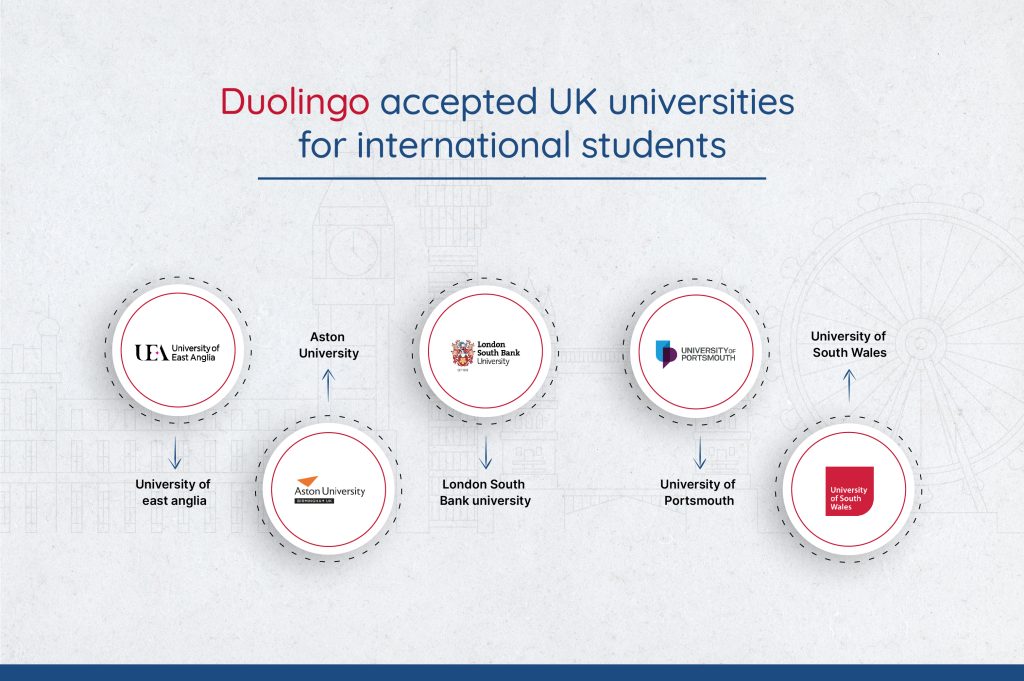
Many UK universities, including top universities in the UK like University of East Anglia and Aston University, accept the Duolingo test as a valid form of English proficiency assessment. To be accepted by UK universities, the Duolingo test typically requires a score in the range of 105-120. A score above 120 is considered to be particularly good for graduate study programs like MBA, MS in Finance, Masters in Law, and MA Fashion.
The Duolingo test is widely accepted at over 3,000 top universities around the world, including many best universities in the UK. Some of the top universities in the UK that accept the Duolingo test may also require international students to take an additional English test specific to that university. However, with its smooth user interface, fast results, and growing acceptance by universities around the world, the Duolingo test is quickly becoming a top choice for international students seeking admission to UK universities.
IELTS – Advantage and Disadvantage
The IELTS exam is one of the most widely recognized English language proficiency tests for international students seeking admission to UK universities. It is a popular choice among students worldwide due to its widespread recognition and acceptance by universities and institutions in the UK and around the world. The IELTS exam offers both paper-based and computer-based options, making it a flexible choice for test-takers.
However, there are some potential disadvantages to consider before choosing the IELTS exam. One of the biggest drawbacks is the cost. The IELTS is one of the more expensive English language tests, and the cost can be a significant barrier for some students. Additionally, the test can be challenging and stressful, particularly for those who are not accustomed to standardized testing.
Another disadvantage of the IELTS is the length of the exam. The test can take up to three hours to complete, which can be exhausting and difficult for some test-takers. Additionally, the speaking section of the exam is conducted in-person with an examiner, which can be intimidating for those who are not comfortable with face-to-face interaction.
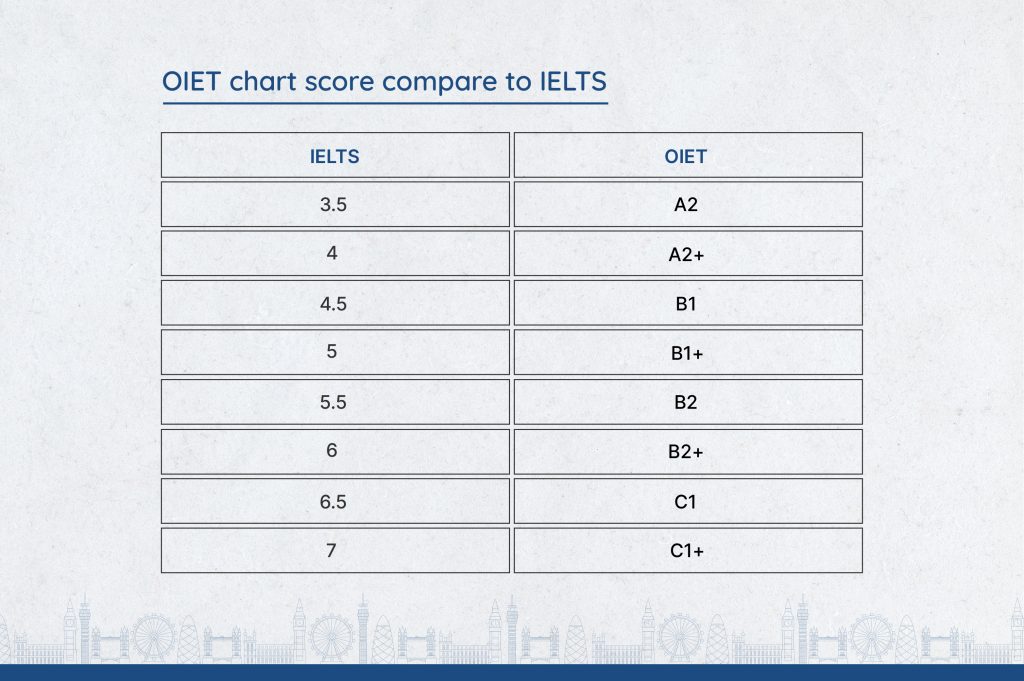
Fortunately, there are alternative English language proficiency tests available that are recognized by UK universities. MOI, OIETC, and PTE tests are all viable options with their own unique advantages. For example, the PTE test is a computer-based test that is two hours long and assesses your English communication skills in real-life situations. Over 400 universities in the UK, including some of the top universities in London, accept the PTE score.
Regardless of which test you choose, it is essential to prepare thoroughly and practice consistently to achieve a high score. By staying focused and motivated, you can overcome any language barriers and achieve your academic or professional goals in the UK. To help you with any other English proficiency test, or your study abroad path, do connect with CFS World